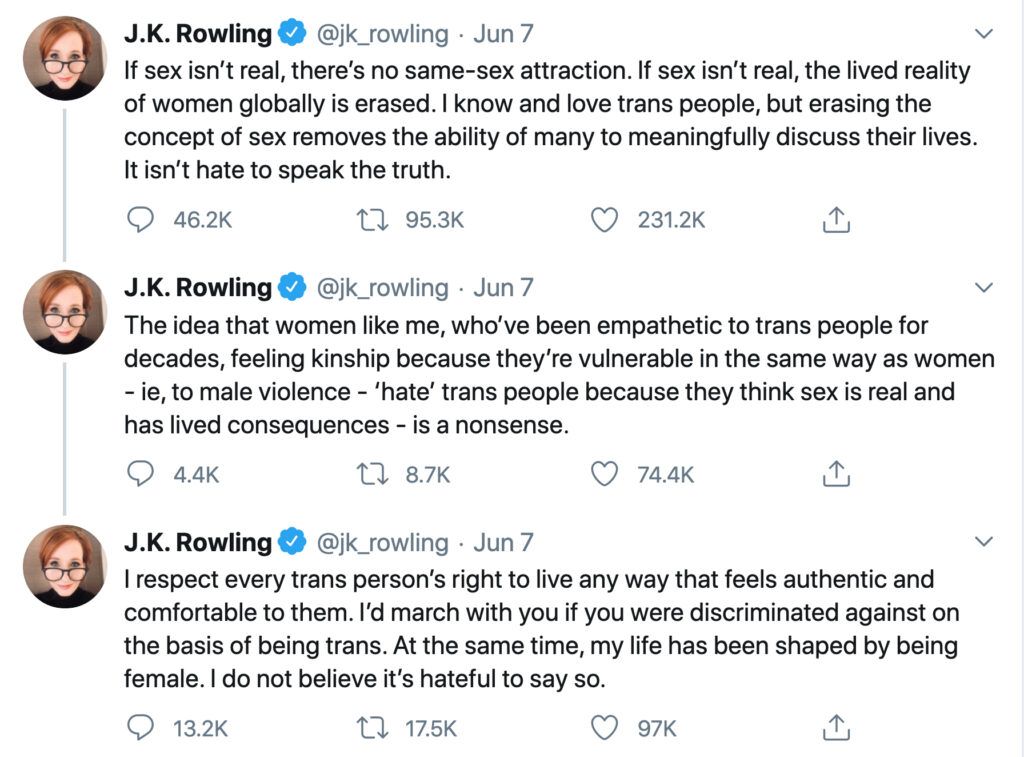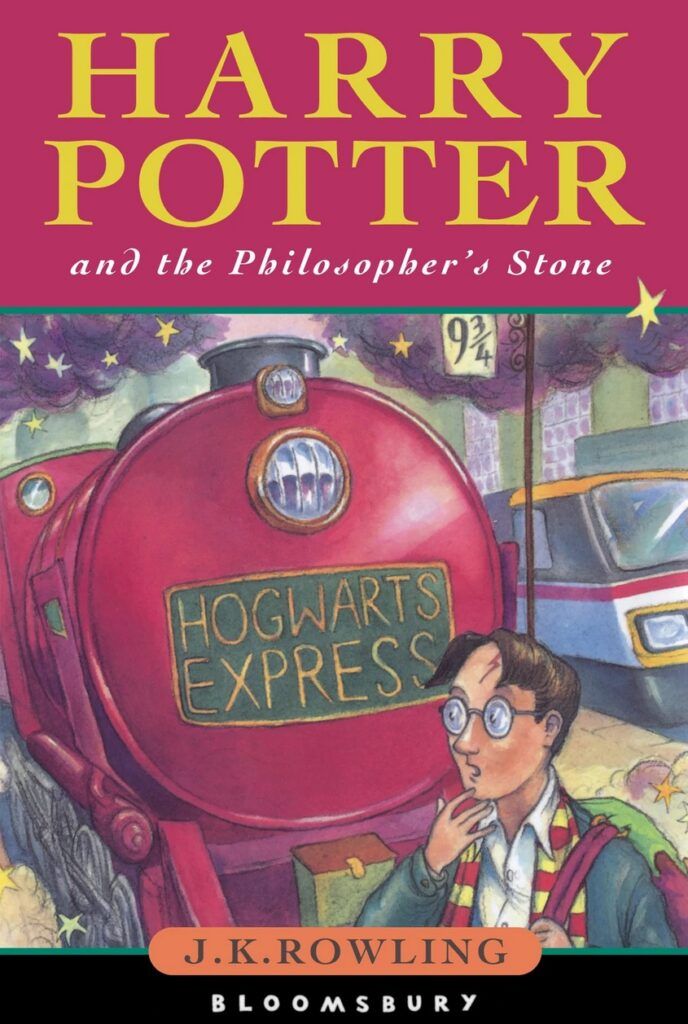GABRIEL GERMAINE DE LARCH
I will not be erased
On the 6th of June, Harry Potter’s J.K. Rowling launched herself at the transgender community. Her tweets, pictured here,

were a sarcastic response to an article speaking about “people who menstruate”, a term that includes transgender men and non-binary people assigned female at birth. The tweets and her subsequent essay explaining her thoughts have since sparked outrage from the transgender and cisgender community, fans of Harry Potter and non-fans alike. Some have responded that they will burn their Harry Potter books. I won’t be doing that, because, these worlds, these characters, this magic, was loaned to her. They were not her creation. She can’t take the magic away from me.

I grew up in the days when you could enter the magical world of a book, crawl between its pages and live there. I grew up in the days when authors were just the small name on the cover. When they weren’t people because they weren’t real. Not as real as the friends I made in that book. Because there was no internet. Because authors didn’t have their own stories. Who knows the story of Carolyn Keene, Franklin W. Dixon? How many of you even know who they are? But if I said Nancy Drew and the Hardy Boys you remember those girls – Nancy, George and Bess – and those boys – Frank and Joe – because they were your friends. You loved them. They took you to places you’d never been. You did things you’d never done before with them. You felt things you’d never felt before then with them. Their dreams, heartaches, triumphs were yours. Their safe world where the baddies got what was coming to them made your world where the baddies were your neighbour, your friend, your parents, made that topsy-turvy world of yours more bearable because you could leave it. It wasn’t Keene or Dixon who did that. It was Nancy, George, Bess, Frank and Joe.

So imagine a world where one of those baddies is the creator of your favourite friends, your preferred world, a people and place that made you feel safe in an unsafe world.
I was abused at the age of three. I had a mother who was too broken to nurture. I lived in a house where I was not wanted or loved until I could speak. I had a father who was an alcoholic and a womaniser, and a man who had no boundaries when it came to loving his little girl. So those peoples and places where baddies were conquered made my world livable.
The topsy-turviness of my world followed me into my adulthood. I was abused seven or eight more times. My mother’s brokenness became entrenched in newfound ways to actively non-nurture me. My father’s Christianity-fuelled sobriety lapsed and his boundariless loving became more enmeshed with my body. A whirlwind of depression that has stormed for 23 years or more blew me down to the point where I had to be hospitalised 14 times in the horrorshow that is public psychiatric healthcare. I had to come out as lesbian, then genderqueer, then transgender, then pansexual and then gay because the world doesn’t have enough narratives to make coming out a moot point. I have had to deal with micro- and macro-aggressions for my sexuality and gender instead. Parts of me have been raped. Parts of me have been maimed. Parts of me have been mutilated. Parts of me have been murdered.
You could, I suppose, attribute the murders to the fact that I stopped believing in fairy-tales. The slack-jawed, gaping-eyed sense of wonderment and awe at the prince and the princess and the pea and the apple and the witch were replaced by a more sophisticated lexicon of adulthood consisting of the vocabulary of disillusionment, the words of negation, the morphemes of cynicism and the phonemes of pain. But I’d like to think I suspended disbelief. I continued to read. I continued to want to believe in a world where everything was right side up where the baddies got what they deserved. And I found that world in Harry Potter.

I was working in the children’s section of Exclusive Books when Harry and his friends joined the world, and I saw the 100s of authors inspired by Harry who have written books that I wish had been written when I was young. But I revelled in these stories and worlds and characters even as an adult, especially as an adult. Here again was a world that I could believe in. The raped, maimed, mutilated and murdered parts of me started to heal because of the ability those books had to transport me back to my childhood and that childlike awe and wonder and, above all, safety.
Hogwarts was a non-topsy turvy world. The baddies didn’t always get what they deserved. The baddies were in some cases actually goodies. The baddies had backstories that enabled you to empathise with them. And the power of love always won out. Hogwarts remained a safe space despite these complexities. Hogwarts became for me, like adulthood, a place where the complexities of the interrelationship between badness and goodness were seen, acknowledged and celebrated. The baddie is sometimes a goodie; the goodie is sometimes a baddie. This is fucking healing. This is magic.
So while the author of this magic lacks the imagination to hold these complexities in her mind, I will not let her erasure of me as a person who menstruates, a person who mourns because our trans lives are being raped, maimed, mutilated and murdered, stop me from accessing that magic, that healing. Because I will not be erased. And neither will the magic.